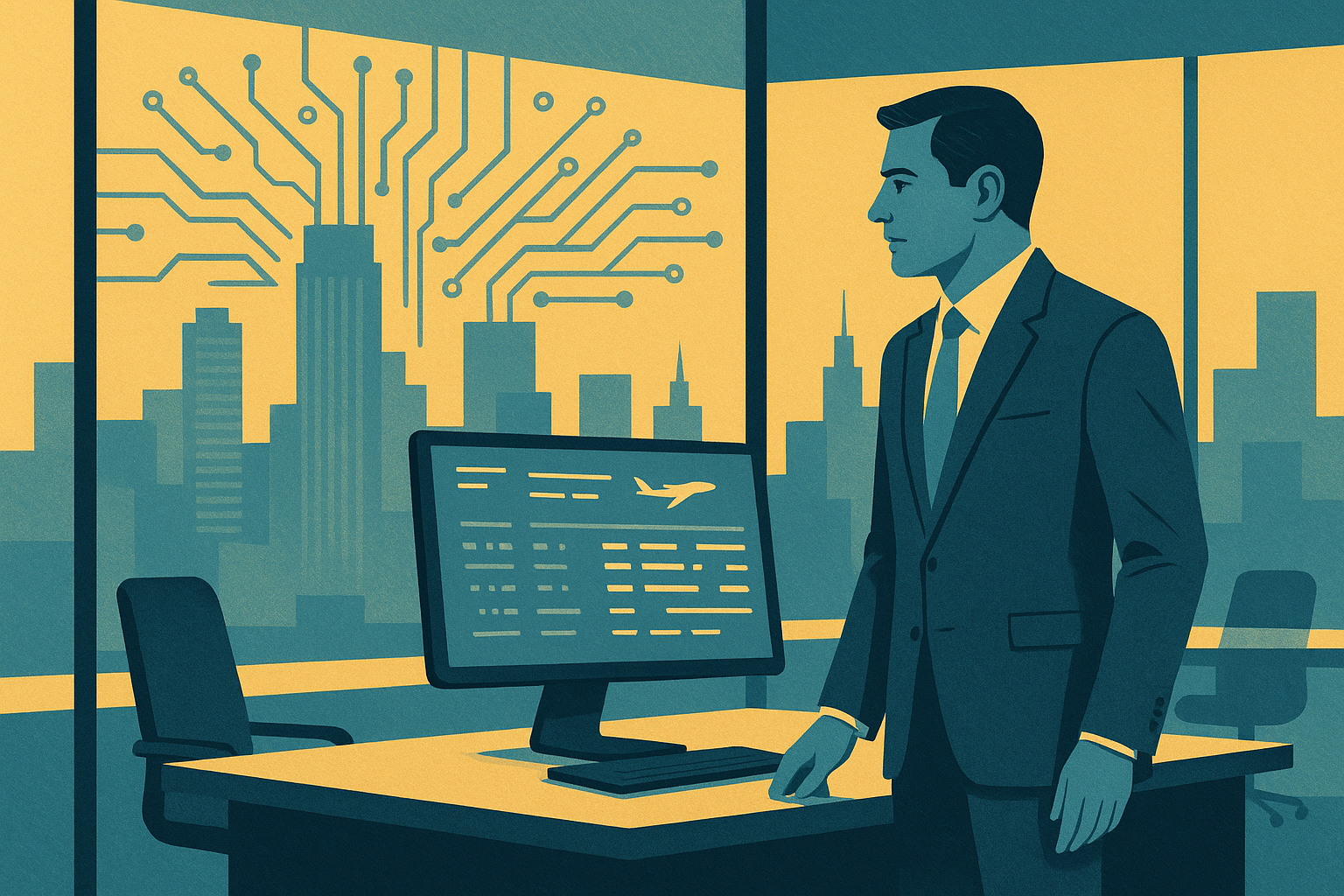For years, British Airways proudly called itself the “World’s Favourite Airline.”
That claim ended in 2001 when Lufthansa overtook it in passenger numbers — and nearly a quarter-century later, the title is even further out of reach. In the most recent Skytrax global airline rankings, BA placed just 13th.
Now 50 years old, the airline has faced persistent challenges: ageing aircraft, flight delays, and recurring customer service problems. But in an effort to climb back to the top, it’s embarked on a £7bn transformation plan — one that includes a new focus on a different set of initials: AI.
And it’s showing early results. In a recent business update, BA CEO Sean Doyle revealed that thanks to AI-powered technologies, two-thirds of its Heathrow flights in April departed ahead of schedule — more than double the figure from the same month in 2023. The AI tools in question include systems that help aircraft avoid bad weather (cutting 243,000 minutes of delays), and ones that streamline how planes are managed at stands.
While delays of more than an hour remain higher than pre-pandemic levels, the trend is promising: BA flights from Heathrow are now less likely to be cancelled or delayed than those of other airlines.
It’s a compelling example of how a company can use AI to boost efficiency and, in turn, rebuild its reputation — a story well told in top-tier media around the world.
Crucially, it signals that AI is no longer a novelty; it is now firmly embedded in business strategy. For company leaders, AI offers a wealth of potential: from productivity and innovation, to ESG reporting, strategic insight, and risk management.
But every opportunity brings reputational risk.
Some are already well-documented. Engineering giant Arup fell victim to a £20 million AI-driven scam when a deepfake impersonation of its CFO tricked an employee into making the payment. Fraud is nothing new — just ask M&S — but the use of sophisticated AI tools has raised the stakes.
Yet it’s not just external threats that carry risk. Internal AI adoption — particularly in content creation — poses reputational hazards of its own. While AI can supercharge creativity, overuse or lack of transparency can leave clients feeling short-changed.
And perhaps the most significant long-term concern is the impact on jobs.
The early efficiency gains from AI are tempting, especially during economic uncertainty. This is already reshaping employment — particularly in professional services. The Big Four accounting firms, for instance, are using AI to handle tasks once assigned to junior staff, leading to significant reductions in graduate hiring. It was reported recently that KPMG alone has cut school leaver and graduate recruitment by a third. At the same time as this entry-level cull, it is claimed that the Big Four accountancy firms are working to maintain £1 million payouts for partners who have been let go due to downturns.
The optics are poor. The broader implications — on talent pipelines, job quality, and corporate responsibility — are ones which will need to be considered for other businesses in all sectors which are going down the same costs and efficiency driven route.
British Airways offers a good example in how careful AI deployment can bolster reputation. It also showed the value of smart communication: by explaining how AI is helping both passengers and staff, and tying that to broader business goals, BA delivered a story that resonated.
BA clearly ensured that it had its ducks in a row before taking the leap to make the initiative public. Although we can be almost certain there were bumps in the road, the story felt authentic – it can be argued it may even help take some of the fear out of AI adoption, such was the narrative around its real-world upside.
Perhaps more importantly, it demonstrated that AI strategy isn’t just for the CTO and tech team. Finance, HR, communications, and the wider leadership must all play a role. A joined-up approach — one that balances reward with reputational risk — is essential.
Regulatory bodies and governments are taking note. The EU has just published its AI Code of Practice which will help companies comply with regulations included in the forthcoming AI Act. This is considered a landmark piece of legislation and the first real attempt by a governing body to strike that tricky balance between adequate protection and room for innovations. Other governments will follow suit, adding an additional layer of complexity to AI adoption.
Above all, AI adoption has the power to reveal something quite fundamental about a company: its values. And as the technology becomes ever more embedded in how firms operate, that question, the one which asks what the adoption of AI says about a company and its future, will be the one leadership teams will need to ensure they have the answer to.

George Coleman is CEO of The PHA Group.




